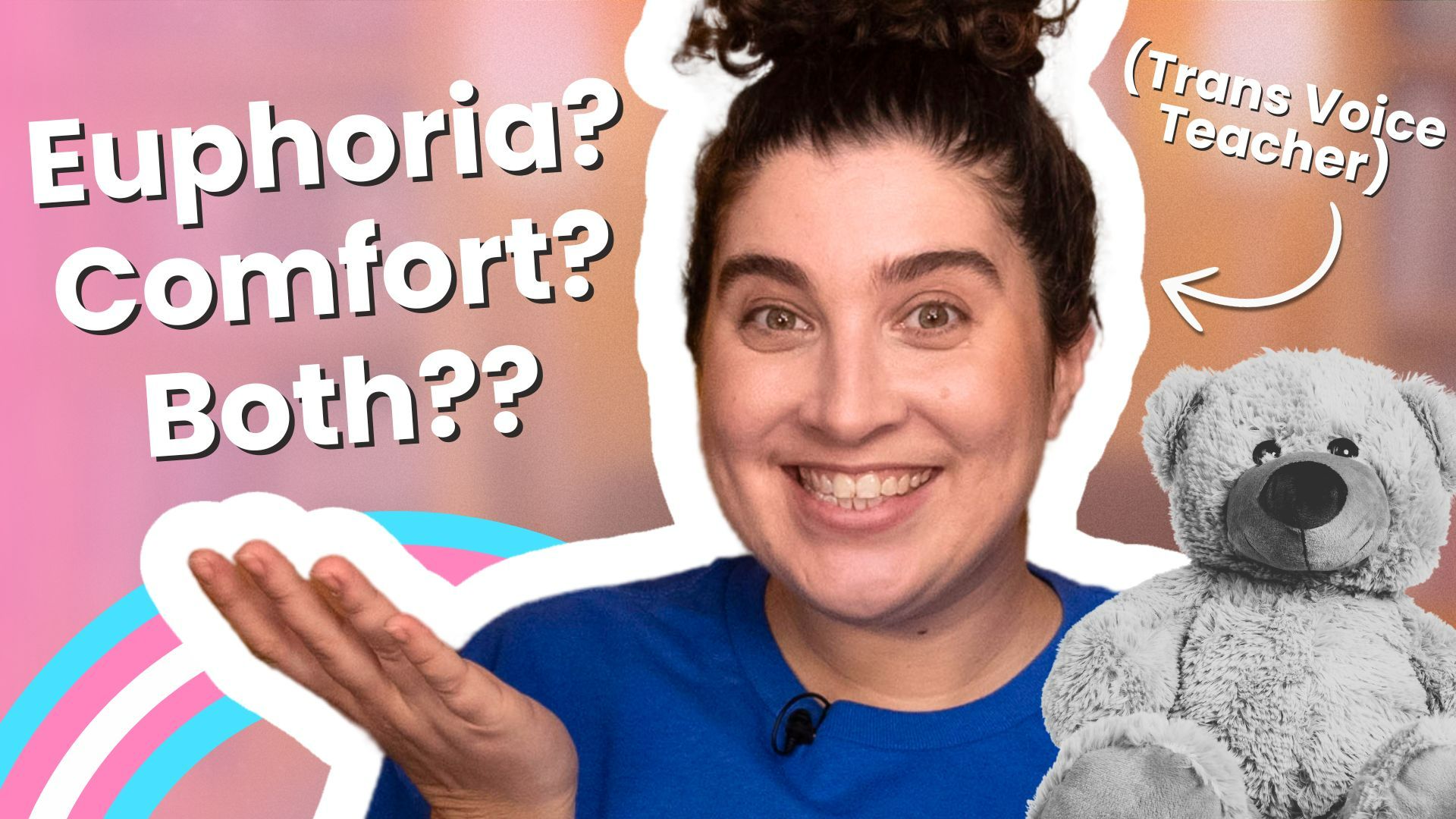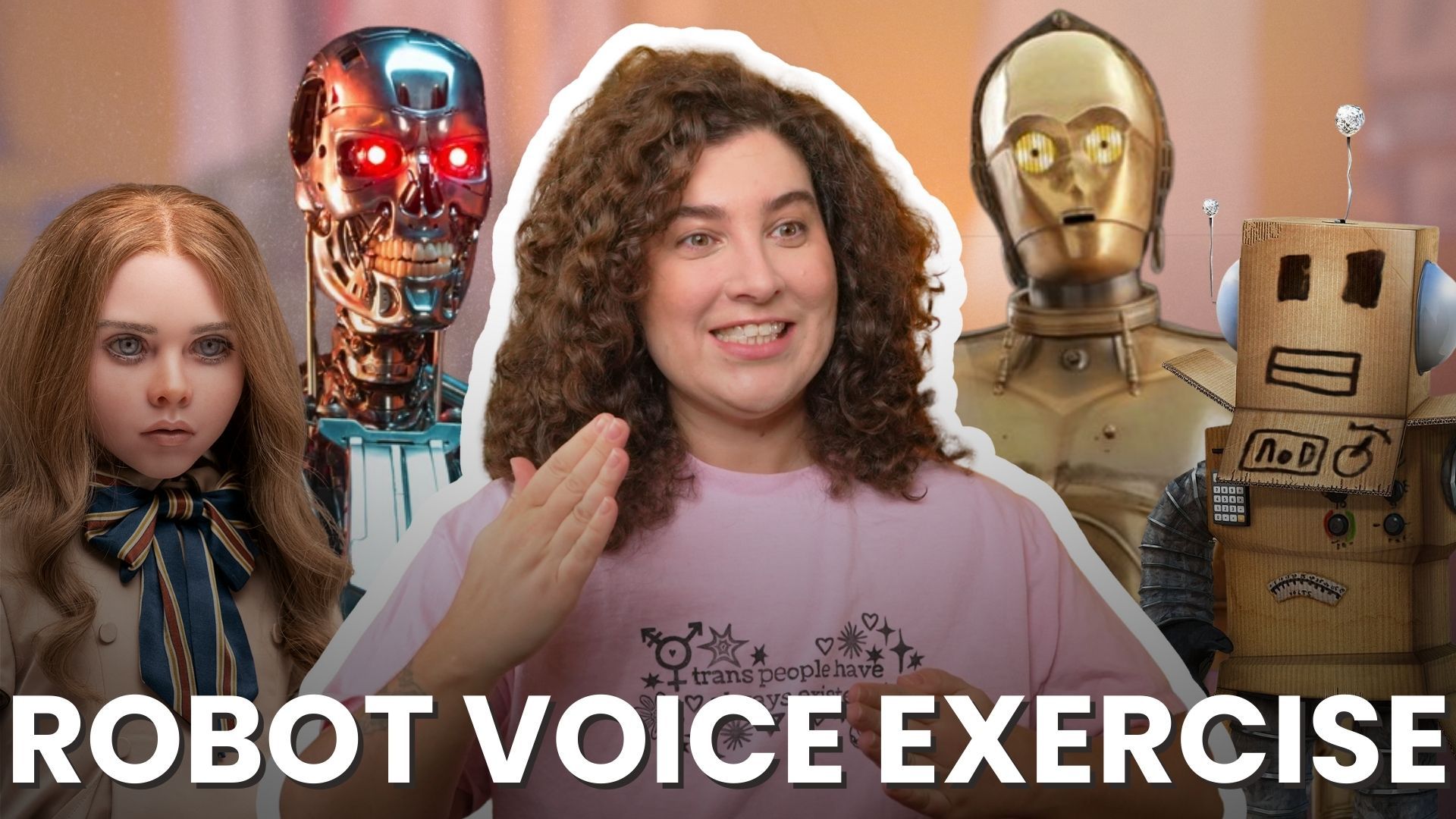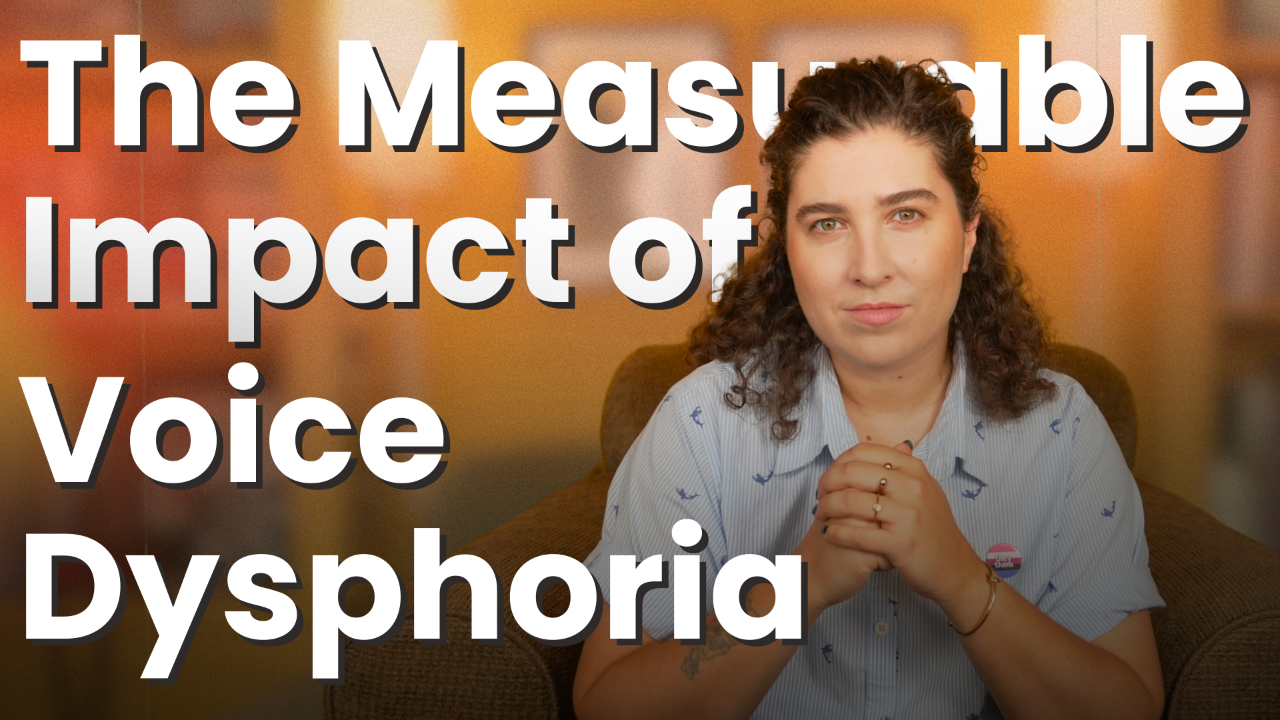Finding Your Authentic Voice: My Conversation with Jeffrey Marsh on Inner Voice
Oct 21, 2025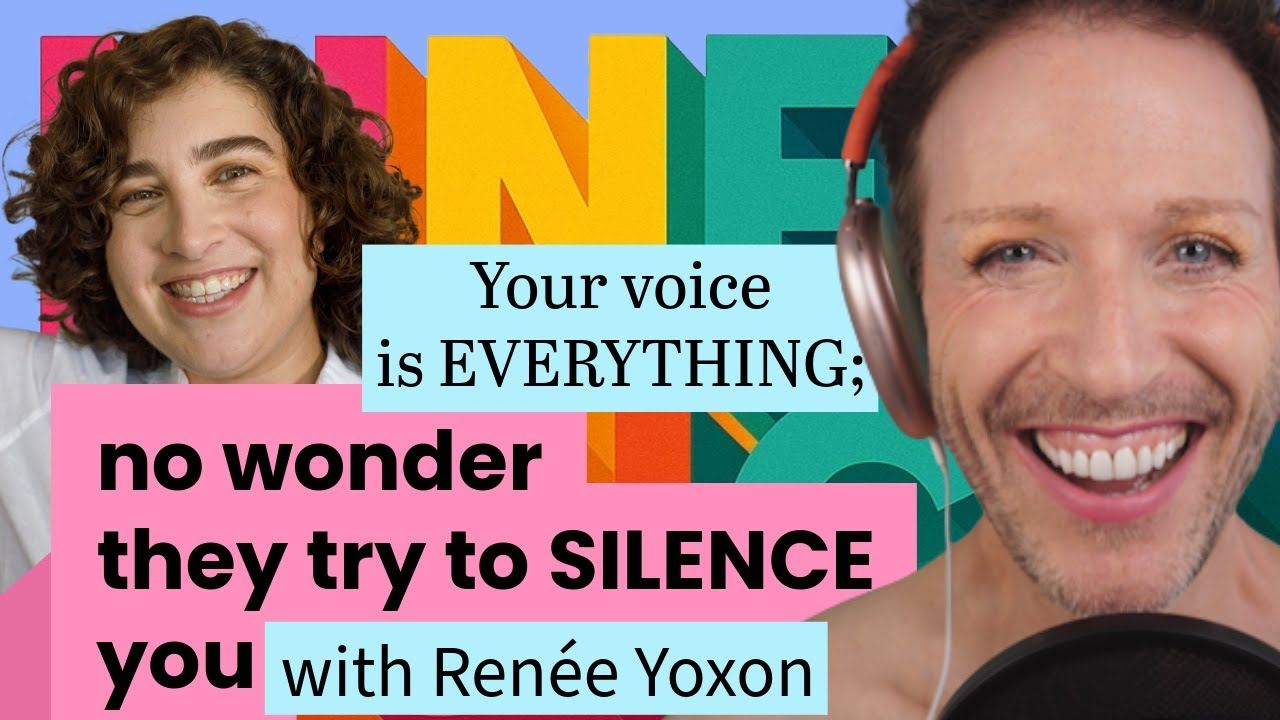
Voice is one of the most powerful tools for self-expression. And for trans and nonbinary people, it can be a profound pathway to gender affirmation. Recently, I had the honour of joining Jeffrey Marsh on their podcast Inner Voice to discuss gender-affirming voice work, the relationship between voice and identity, and how we can all reclaim our authentic expression.
If you're navigating trans voice training, exploring voice feminization or voice masculinization, or simply curious about how voice shapes who we are, this conversation offers insights that go far beyond technique.
Table of Contents
- Watch the Full Episode
- Voice as Expression and Identity
- Inside Out and Outside In: Acceptance Meets Change
- The Incredible Versatility of Voice
- Creating Safe Spaces for Vocal Exploration
- Chronic Pain, Disability, and Finding Freedom
- The Gift of the Outsider Perspective
- Staying Present with Pain and Practice
- Key Takeaways
- Resources for Gender-Affirming Voice Training
Watch the Full Episode
Prefer to read? Keep scrolling for a complete breakdown of our discussion about voice, identity, and radical self-acceptance.
Voice as Expression and Identity
Your voice isn't just sound, it's how you show up in the world. As Jeffrey beautifully put it during our conversation, voice is a reflection of everything we've experienced: our traumas, triumphs, celebrations, and the environments that shaped us.
For trans, nonbinary, and gender-expansive people, voice can be a powerful tool for gender affirmation. But it's important to remember that there's no single "correct" way to sound. Whether you're pursuing voice feminization training, masculine voice training, or designing a nonbinary voice that feels uniquely yours, the goal is authenticity, not conformity.
Voice Work as Self-Worship
One of the most profound moments in our conversation was when Jeffrey framed voice work as an act of self-worship. We discussed how radical self-acceptance and intentional change aren't contradictory—they're complementary practices that allow us to honour who we are while creating space for growth.
Some people approach transgender voice training because of voice dysphoria. Others see it as a tool they can "put on" at the beginning of the day, much like one of my students described wanting their voice to be like a bra: supportive when needed, but removable when they're home with loved ones.
Check out my blog post about all the reasons that trans people voice train. Some of the reasons might surprise you!
Inside Out and Outside In: Acceptance Meets Change
Jeffrey and I explored the seeming paradox of working toward complete self-acceptance while simultaneously changing aspects of ourselves. But as we discussed, these practices actually meet in the middle because both are acts of self-love.
You can accept yourself exactly as you are and still desire change.
This perspective is especially important in trans voice lessons, where students sometimes feel conflicted about wanting to modify their voice. There's no shame in voice training, just as there's no shame in choosing not to train your voice. Your authentic expression is whatever feels right for you.
The Incredible Versatility of Voice
One point I emphasized during our conversation is that there is no single voice to love or hate. Your voice is remarkably versatile! The way you speak to your pet is completely different from how you speak to your boss.
When someone says "I hate my voice," I encourage them to get specific: What is it about this particular version of your voice that doesn't resonate? Is it the pitch? The resonance? The breathiness? Getting granular helps identify what you actually want to change.
Working Without Recordings
Many people struggle with listening to recordings of their voice, and I want to be clear: you don't need to make recordings to do effective voice work. I've developed tools that allow students to evaluate their progress without the barrier of hearing themselves on playback.
Meeting people where they are is essential. If recordings create a barrier, we find another pathway forward, such as my free progress tracker the Trans Voice Emotions Evaluator, which can download now in my freebies library.
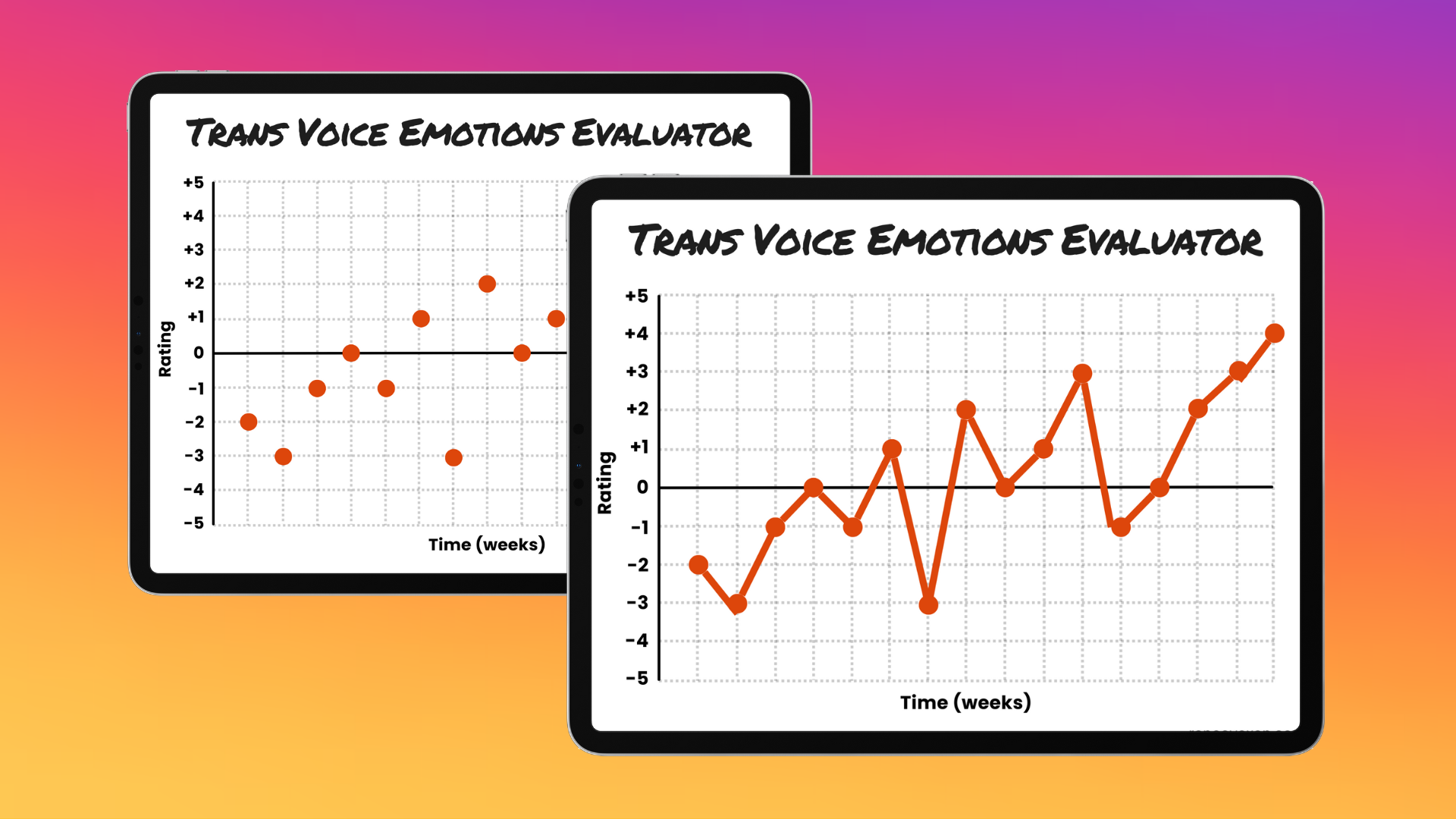
Progress Tracker
Let me guess: you want to evaluate your progress in your trans voice practice, but you HATE listening to recordings of yourself. It’s totally normal! I made this tool with you in mind.
Creating Safe Spaces for Vocal Exploration
Jeffrey and I discussed the importance of creating environments where people feel safe to experiment, make "mistakes," and explore their vocal range without judgment.
The first module of all my courses focuses on play, like being silly, making sounds, and exploring without the pressure of sounding "right." Sometimes I even encourage students to divorce voice work from gender performance entirely at first. Instead of worrying about sounding masculine enough or feminine enough, we might start by imitating a microwave or a snowplow.
Once people feel comfortable playing with sound, we can gradually bring gender back into the conversation. But creating that initial space for experimentation is crucial for transgender vocal training success.
One way you can start experimenting is with my free follow-along voice warm-up for trans voices!
This is another free trans voice resource found in my freebies library.
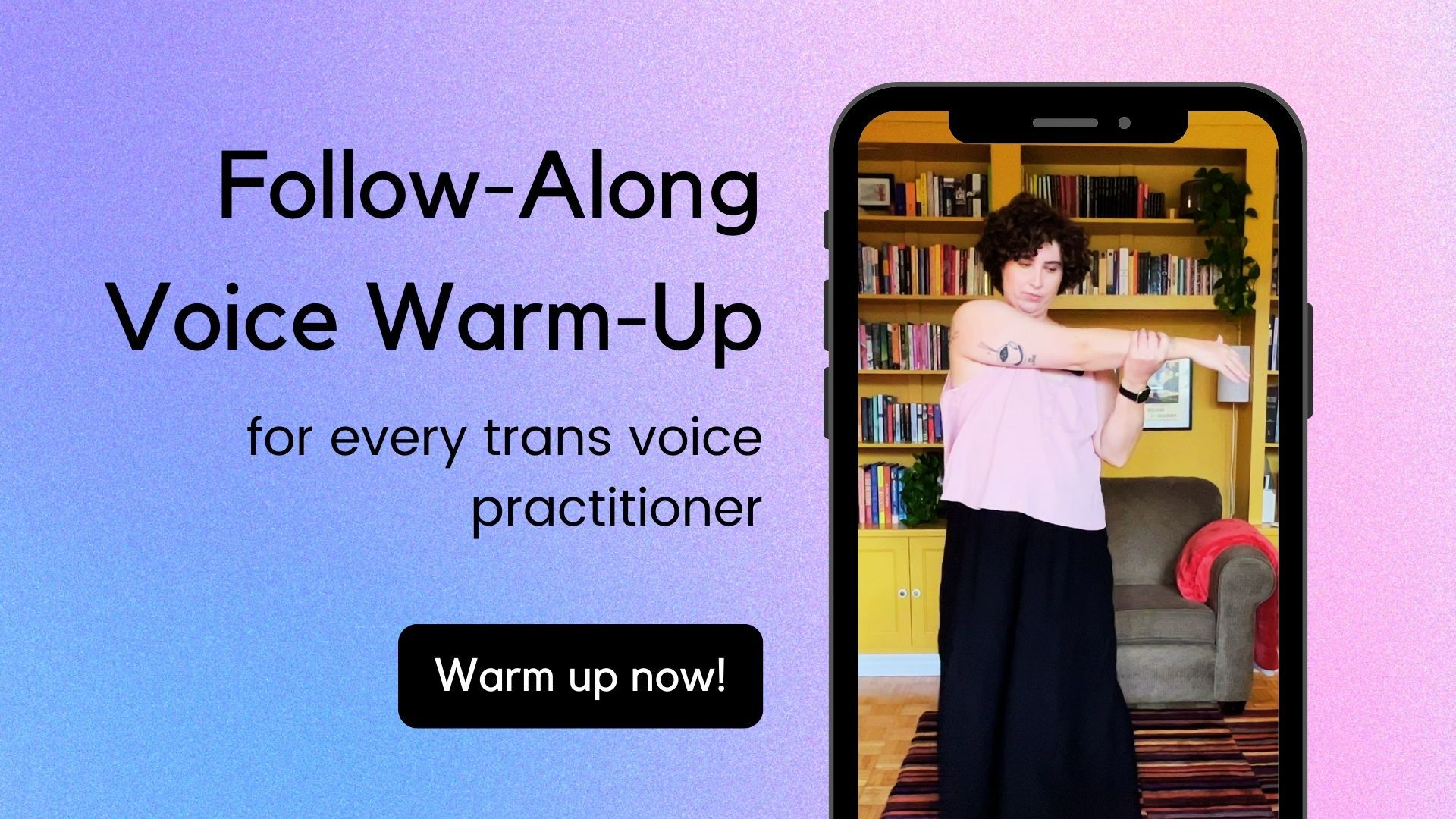
Voice Warm-Up Videos
Follow along with me as I teach you a secret weapon to help you gain control of your voice.
Chronic Pain, Disability, and Finding Freedom
Jeffrey asked about a difficult period in my life, and I shared my experience with chronic pain, which began around 2005 and significantly impacted nearly a decade of my life.
How Chronic Pain Changed My Voice
During the worst years of my chronic pain, I was performing as a singer while dealing with severe back pain. I had to develop an entirely new singing technique that didn't require the rib cage support and costal expansion typically needed for powerful singing. Instead, I created a microphone-heavy approach using very little air.
Those years of chronic pain fundamentally changed not just my voice, but my entire perspective on life, disability, and what it means to be present.
The Anti-Voice Coach Within
During those years, my inner voice was cruel. It told me things like "your life is over" and "you're never going to have the things you want." Jeffrey calls this the "anti-voice coach"—that critical internal voice that adds suffering on top of pain.
One practice Jeffrey uses with clients is having them write down what that inner voice says. Seeing it on paper reveals just how deeply unkind we can be to ourselves. Our inner critical voice says things we would never say to another person.
Pain Versus Suffering
Through my experience and my Buddhist practice, I learned to distinguish between pain and suffering. Pain is a physical sensation; suffering is what our mind creates around that sensation.
Today, when I experience pain flares, they're just facts. The pain doesn't say anything about my future or my worth as a person. I've developed strategies to prevent spiraling like getting up to watch a movie with popcorn if pain prevents sleep, transforming it into a fun sleepover experience rather than a catastrophe.
Levity has become an essential part of my practice for staying grounded in the present moment.
The Gift of the Outsider Perspective
Jeffrey and I discussed how being outsiders (whether through gender nonconformity, disability, or other marginalized identities) can actually be a gift.
As a disabled person, I was constantly transgressing expectations of femininity. I used mobility aids, got stared at, and was never adequately performing womanhood in the way society expected. When you're already transgressing, it's not such a leap to question gender entirely.
Being an outsider taught me that the gender system is constructed and that realization created space for me to explore my nonbinary identity with more freedom.
I wouldn't trade my years of chronic pain for anything. They made me the empathetic person I am today, gave me an expansive view of what it means to be human, and deepened my capacity to hold space for others' experiences in all their complexity.
Staying Present with Pain and Practice
Jeffrey asked about my current relationship with pain and how I stay present without spiraling into fear about the future.
Honestly, I don't know exactly when it shifted, but I'm almost always in the present moment now. When pain flares happen, they're just facts, not predictions about my future or reflections of my worth.
I've also found incredible freedom through running. Three years ago, I started running as prehab for top surgery (there's a correlation between cardiovascular health and surgical outcomes). I never thought I'd be able to run after years of mobility challenges, but recently, I ran my first 10K race.
Running has become another metaphor for freedom. It's a meditation practice that makes me feel like I'm flying.
Key Takeaways About Voice, Identity, and Self-Expression
1. Voice Is Multifaceted
There's no single voice to love or hate. Your voice changes depending on context, emotion, and intention. Getting specific about what aspects you want to explore or change is the first step in effective voice feminization therapy or any gender-affirming voice work.
2. Acceptance and Change Coexist
You can radically accept yourself while also working to change aspects of your presentation. Both practices are forms of self-love, and they're not contradictory.
3. Safe Spaces Enable Exploration
Creating environments free from judgment (where you can be silly, make mistakes, and experiment) is essential for vocal growth and self-discovery.
4. The Inner Critic Adds Suffering
The anti-voice coach inside your head is often cruel and inaccurate. Recognizing that critic as separate from reality is a powerful step toward healing.
5. Outsider Status Can Be a Gift
Being marginalized can provide clarity about constructed systems like gender. That perspective creates space for authentic self-expression beyond societal expectations.
6. Present-Moment Awareness Changes Everything
When we can experience challenges, whether pain, dysphoria, or discomfort, as present facts rather than predictions about the future, we reduce our suffering significantly.
Resources for Gender-Affirming Voice Training
If you're interested in exploring trans voice training, I offer three comprehensive courses:
- Mindful Voice Feminization – For trans women and transfeminine people seeking MTF voice training
- Masculinize Your Voice Without Testosterone – For transmasculine people and those seeking deeper, more masculine vocal qualities
- Mix and Match: Designing Your Non-Binary Voice – For nonbinary folks who want to create a voice that's uniquely theirs
I also share weekly transgender voice coach tips on my YouTube channel, weekly personal stories in my newsletter, and free resources in my freebies library.
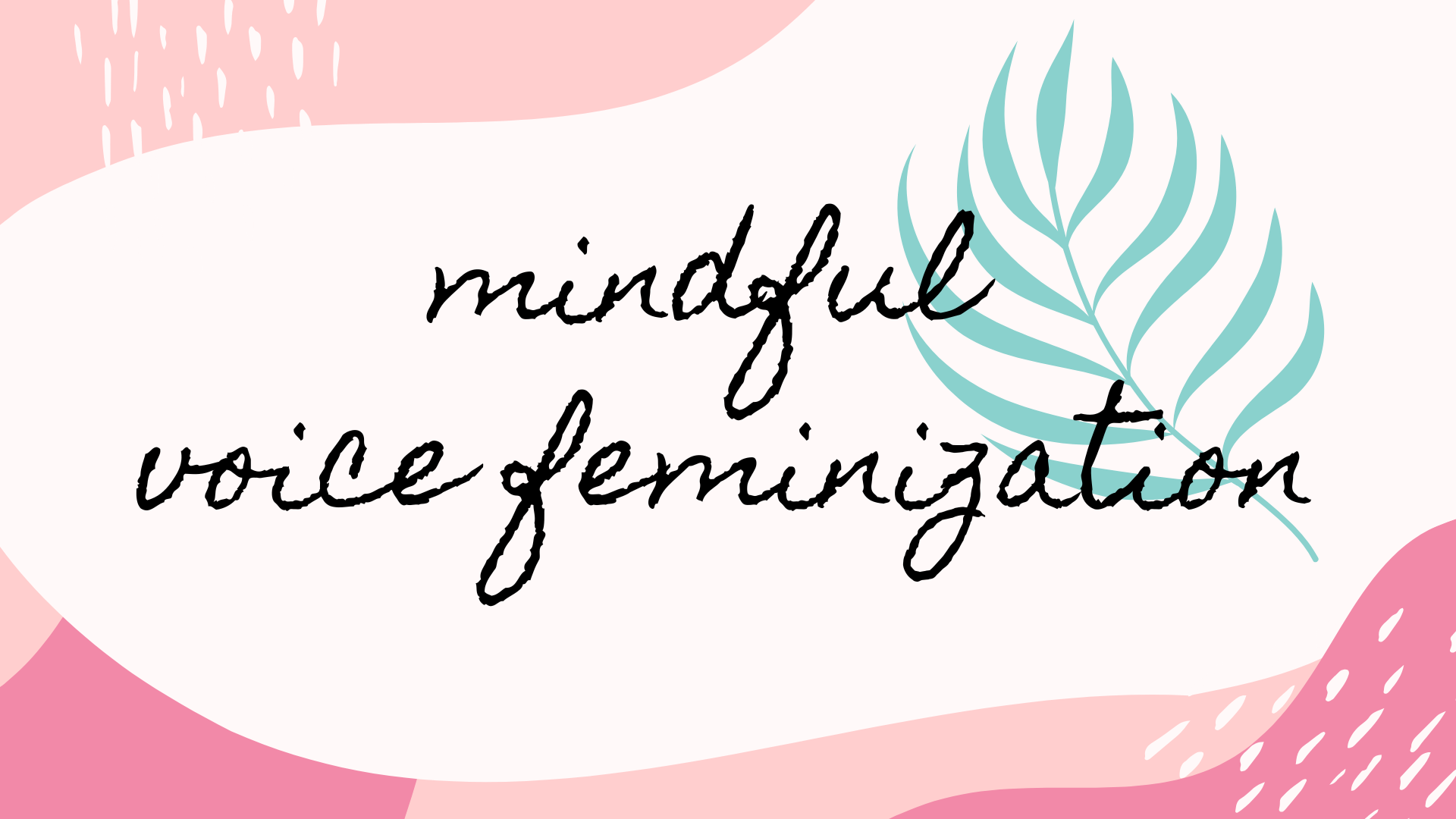
Mindful Voice Feminization
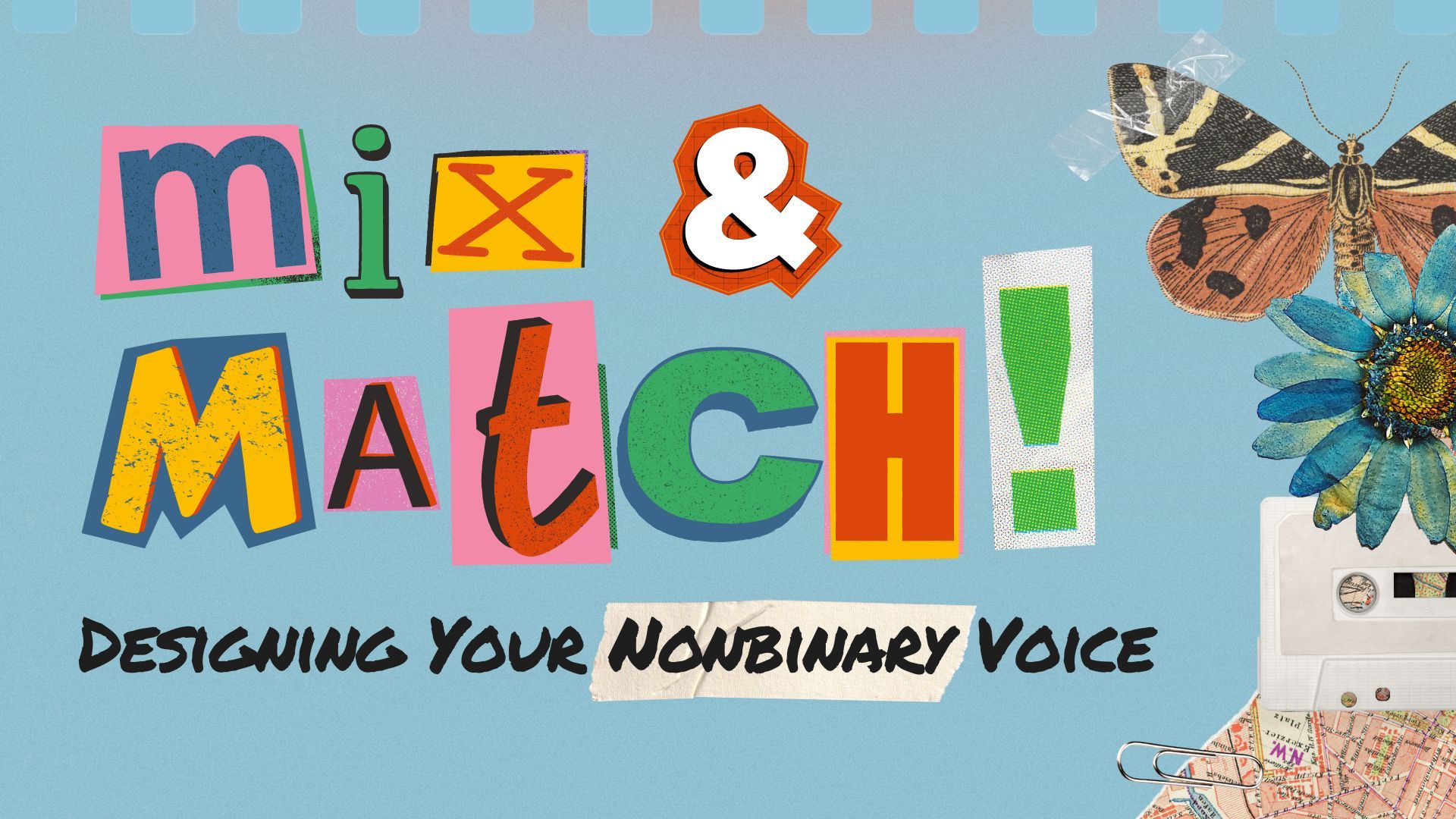
Mix & Match! Designing Your Nonbinary Voice
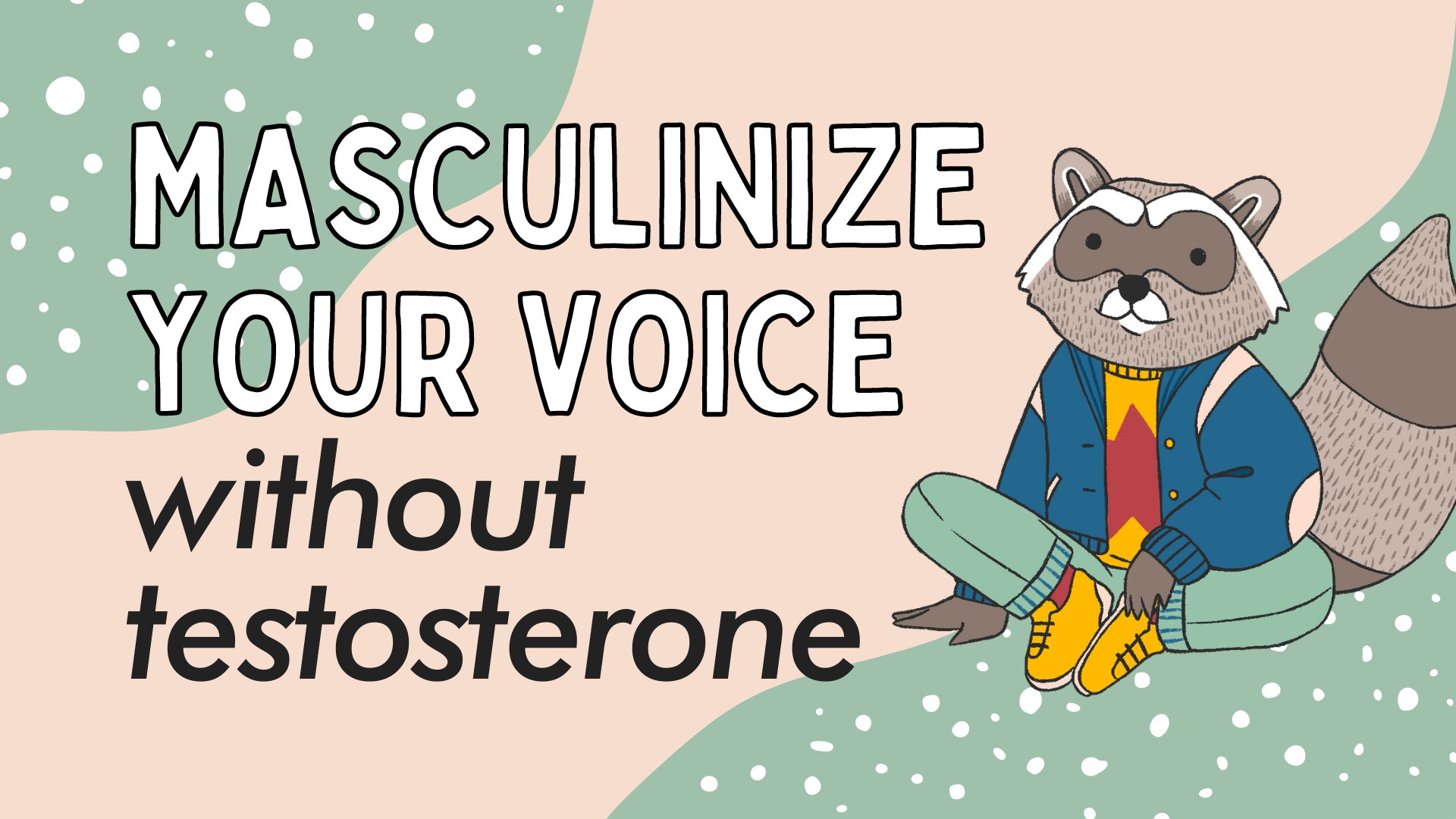
Masculinize Your Voice Without Testosterone
Conclusion: Your Voice Matters
As Jeffrey reminded us at the end of our conversation: Healing doesn't happen in silence. It happens in expression.
Your voice is your daily act of affirming your whole self. Whether you're exploring fem voice training, working on vocal feminization, or simply learning to love the voice you already have, remember that your expression matters.
Don't let anyone—including that anti-voice coach in your head—silence you. Speak up. Your voice is important.
Ready to explore your authentic voice? Check out my YouTube channel for weekly tips, or explore my gender-affirming voice courses designed specifically for trans, nonbinary, and gender-diverse people.
Want weekly tips, resources, and insights on trans voice training? Sign up for my newsletter and get the latest content delivered straight to your inbox. It's free!

